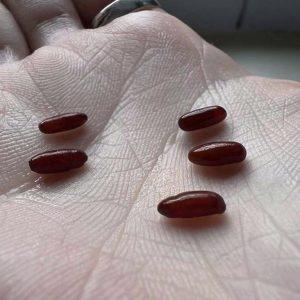Did You Know That Waking Up at 3 or 4 in the Morning Can Be a Strong Sign of Something Going On in Your Body?
Many people experience it at least once: you wake up suddenly at 3 or 4 a.m., wide awake, mind racing, and unable to fall back asleep. While it’s easy to brush off as random insomnia, repeated early-morning awakenings can sometimes signal that your body or mind is trying to tell you something.
Importantly, this does **not** mean something is seriously wrong — but it *can* point to underlying factors worth paying attention to.
—
### 1. Stress and Anxiety Are the Most Common Causes
The most frequent reason for waking up at 3–4 a.m. is **stress-related cortisol release**.
Cortisol is a hormone that helps regulate alertness. In people under chronic stress or anxiety, cortisol levels can spike too early in the morning, jolting the body awake before it’s ready.
Signs this may be the cause include:
* Racing thoughts upon waking
* Heart pounding or a sense of alertness
* Difficulty falling back asleep
* Feeling “wired but tired” during the day
This type of awakening is extremely common in people dealing with emotional stress, burnout, or unresolved worries.
—
### 2. Blood Sugar Fluctuations
Another overlooked reason is **unstable blood sugar levels**, particularly in people who:
* Eat heavy or sugary meals late at night
* Drink alcohol before bed
* Skip meals or follow very restrictive diets
When blood sugar drops during the night, the body releases stress hormones (adrenaline and cortisol), which can wake you abruptly.
You might notice:
* Night sweats
* Shakiness or hunger upon waking
* Vivid dreams or nightmares
Balancing evening meals and avoiding late-night sugar can help in these cases.
—
### 3. Hormonal Changes
Hormonal shifts can also play a role, especially in:
* Perimenopause and menopause
* Postpartum periods
* Thyroid imbalances
Estrogen, progesterone, and thyroid hormones all influence sleep regulation. Changes can disrupt deep sleep and cause early awakenings.
If early waking is new and persistent, and accompanied by:
* Hot flashes
* Mood changes
* Weight or energy changes
it may be worth discussing hormone levels with a healthcare provider.
—
### 4. Your Sleep Cycle Naturally Becomes Lighter
Sleep naturally becomes **lighter in the early morning hours**. If something small disturbs you — light, noise, temperature changes — you may wake up more easily at that time.
Contributing factors include:
* Aging (lighter sleep is common as we get older)
* Inconsistent sleep schedules
* Sleeping in a bright or noisy environment
This doesn’t always signal a health problem, but improving sleep hygiene can reduce it.
—
### 5. Depression Can Manifest as Early Morning Waking
Waking consistently at 3–4 a.m. and being unable to fall back asleep can be a subtle sign of **depressive patterns**, even in people who don’t feel “sad” during the day.
This is often paired with:
* Low motivation or fatigue
* Loss of pleasure in daily activities
* Feeling mentally heavy in the early morning
If early waking is paired with emotional changes, reaching out for mental health support can be very helpful.
—
### What It Usually Doesn’t Mean
Despite claims online, waking at 3–4 a.m. is **not**:
* A supernatural sign
* Evidence of organ failure
* A guaranteed sign of serious illness
Most of the time, it’s linked to stress, lifestyle, or temporary biological changes.
—
### What You Can Do
If this happens regularly, try:
* Keeping a consistent bedtime and wake time
* Avoiding heavy meals, sugar, and alcohol before bed
* Creating a dark, cool sleep environment
* Practicing relaxation techniques before sleeping
* Not checking the clock if you wake up
If the issue persists for weeks or affects your daytime function, consult a healthcare professional.
—
### The Bottom Line
Waking up at 3 or 4 in the morning is common — but frequent early waking can be a **signal**, not a sentence. It often reflects stress, hormonal shifts, blood sugar changes, or emotional health rather than something dangerous.
Listening to your body, reducing stress, and adjusting habits are often enough to restore restful sleep — and if not, help is available.
Sleep is your body’s nightly reset. Protecting it is one of the best investments you can make in your overall health.





